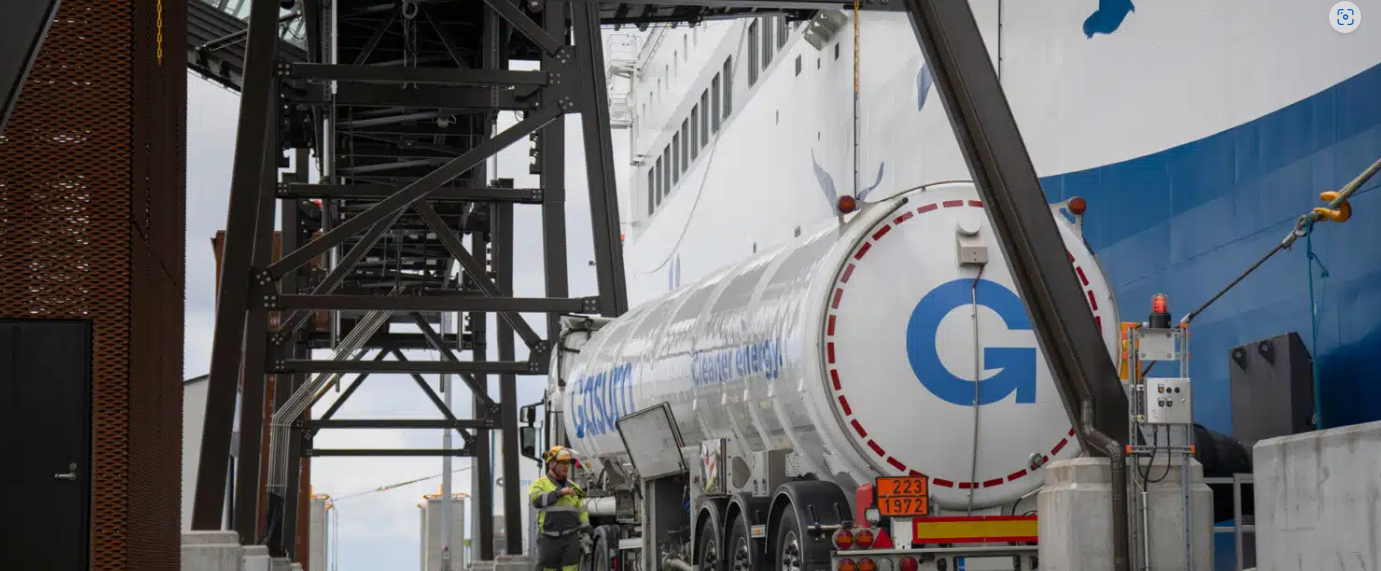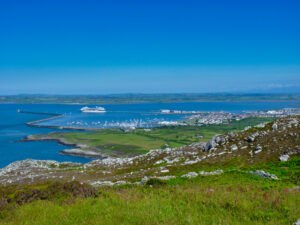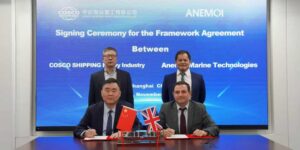The Finland-based Wasaline carrying passengers and cargo on their modern Ro-Pax ferry “Aurora Botnia” between Vasa in Finland and Umeå in Sweden, has announced that it will start operating with certified biogas one day a week on Fridays from 13th October, and thereby be fully climate neutral on these departures.
The “Green Fridays” pilot project will continue until Christmas in preparation for the EU emissions trading system that will come into force next year, but since biogas is more expensive than LNG (liquefied natural gas), which is the current primary fuel of M/S Aurora Botnia, the company states that it will cover the extra costs on behalf of its customers.
Wasaline notes it has already reduced its CO2 emissions by 22% this year compared to last year, and the use of biogas will further reduce CO2 emissions of “Aurora Botnia”. With its four trips on Fridays, 18% of the total weekly ferry departures will be operated with biogas.
Peter Ståhlberg, Managing Director at Wasaline said that “Aurora Botnia is the world’s most environmentally friendly ferry today, but our efforts to reduce our climate footprint continue.This is a pilot project to measure the interest of our cargo owners and passengers, and whether it is financially viable to continue biogas purchases. We would like to thank our loyal customers who have made this unique investment in climate-neutral transport possible for the first time in the Quark.”
Jacob Granqvist, Vice President, Maritime at Gasum, said that “This is a great initiative that we at Gasum are very happy to be a part of in our role as biogas supplier. Biogas is one of the already available concrete pathways to reducing emissions in maritime transport and travel and it’s fantastic that Wasaline is now setting on this pathway to provide lower emissions services to its customers. Our goal is to continuously increase biogas availability to our customers in the coming years.”
Ida Saavalainen, CEO at Ahola Group, said that “The connection between Vaasa and Umeå is very important for our Nordic traffic. Sustainability and holistic environmental-effective solutions are a central part of our operations where we work actively to reduce our footprint. Our methods include real-time optimization of routes, high filling degree, energy-efficient driving, and the use of alternative fuels with lower emissions. We are pleased to reduce emissions even further with the help of biogas-powered ferry connections by Wasaline.”



